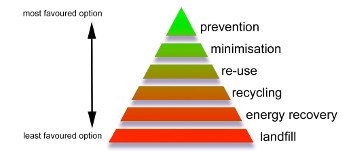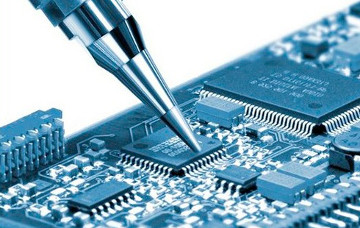
E-Waste

One of the most under-reported problems at the moment is that of electronic waste or 'E-Waste'. Sometimes shocking pictures appear of mountains of TV's, and fields full of refrigerators, but generally we are kept ignorant of the effects our consumption habits have on the wider environment.
Not only is the amount of non-biodegradable plastic we discard a concern, printed circuit boards contain toxic materials and heavy metals that can leach in to the ground. E- waste presents us with a challenge as it cannot simply be thrown in landfill. E waste is classed as hazardous under the 'Waste electrical and electronic equipment (WEEE) 2005 regulations.

In many cases E-waste gets shipped abroad to developing countries and these places have literally become dumping grounds for the EU and USA. You need only ask yourself what happened to all those huge cathode ray tube televisions that took up a corner of our living rooms, when we all upgraded to a nice new wall mounted flat screen TVs?
The short answer is that they literally dumped them all in Africa. Greenpeace have exposed some of these practices in Ghana. Whilst some effort has been made to start recycling E-waste ,the main problem is actually the amount of waste generated by our consumption habits.
The main cause of pollution is actually the mining of raw materials and the industrial processes used in the manufacture of new goods. Even recycling plants cause a lot of pollution as they use a lot of energy to reclaim materials and as far as the waste minimisation hierarchy goes, recycling is not the best option, even if it is better than landfill.
What we really need to do is stop our unfettered consumption of products by re-using what we already have wherever possible, and ensure that manufacturers make it feasible to repair things once again. Ultimately, the hyper-consumerism we see now is the product of an unsustainable economic system.
It really reduces down to the simple proposition that we exist on a world of finite resources.
Our economic system is predicated on the idea that the economy will grow indefinitely, which requires ever increasing production of goods and services. In a world that is exponentially increasing in population, and has developing countries aspiring to the lifestyles we enjoy over here, we are required to cling on to a delusional chain of magical thinking, in order to avoid the palpable contradiction we are faced with here.
Whilst I will agree with you that we are not going to be out on a limb the day after tomorrow, it is ultimately inevitable that we will have to change our ways eventually. Many people take comfort in the idea that green technology and the market will take care of everything. Unfortunately, this also requires the belief that a bunch of sociopathic billionaires and their shareholders will accept a reduction in their profits in order to facilitate the betterment of collective humanity.

Not withstanding the threat of cataclysmic climate change caused by the manufacture and production of these goods and services, we are also running out of the metals that are used in manufacturing electronic devices. Reserves of metals such as antinomy, indium, tin, and zinc are starting to dwindle.
Even though best estimates reckon we have ten to twenty years of reserves, this overlooks the fact that the cost of extracting these metals is going to increase. The rare metals, upon which we are dependent on, for so called green technologies are also going to become increasingly harder to get hold of.
These problems transcend political divisions and the logic is undeniable, even if we are able to turn away and shrug our shoulders at present.

It is not so much that we need to hug trees and preach to everyone about how the end is nigh for civilisation, it is simply about taking right action and being more responsible with our consumption habits. Unfortunately for us we are going to have to be the change we wish to see, it certainly cannot be left to captains of industry and the corrupt politicians who are in their pockets.
One of my goals is to encourage people to to reject the throw away society that has partly resulted from the choices made by manufacturers to over inflate their sales figures. We can do this by extending the use of our devices, repairing broken electronics, and re-purposing them. We can also give stuff away instead of throwing things away, and teach other people how to take things apart and fix them.
Meanwhile as consumers we can put pressure on manufacturers to make parts available for reasonable prices, make products that are designed to be serviced and upgraded, and above all, improve their build quality so we can expect them to last a reasonable amount of time, rather than being designed to fail.
There is certainly room for manufacturers and recycling companies, however, anyone believing that we can sustain this level of industrial output and consumption indefinitely is not looking at the facts. Not only does such a 'believer' need to provide a coherent account of how we plan to get more raw materials, they also need to be able to provide an account of how we are to source the energy required for such endeavours as industrial scale recycling, whilst reducing our carbon foot print.

Furthermore, they will also need to account for how these so called green technologies, which incidentally require rare metals and have a large energy cost in the whole production chain, are going to feasibly solve this dilemma for humanity on an global scale. The nature of these technologies require increasingly complex compounds that are harder to recycle and more energy intensive to produce.
In fact the amount of energy required to make a solar farm in the desert means that we must expend one unit of energy for every 1.6 we produce. To put that in perspective, when we started extracting fossil fuels we were expending one unit of energy for every 100 we produced. Wind power is much better than solar at 18 : 1, however, as resources become more expensive and energy intensive to extract, we should expect to see this drop.
Renewables are not exactly environmentally friendly to produce, especially in the scale required to solve the global energy shortages we will one day face.
Whilst all this doom mongering stuff is not exactly what we want to read, we can take a more positive approach to find solutions. Some of the things I would like manufacturers to do would be to standardise some components and make things interchangeable. An example would be induction motors. If manufacturers could agree a standardised size, mounting specification, and power output, it would be easier to cannibalise other machines for components and keep them running longer.
Likewise, it would also be good to see build quality improve on many things. I am sure that these days people would rather pay extra for well engineered quality. Maybe post-brexit these kinds of things might constitute some sort of industrial strategy, although this is probably nothing more than a flight of fancy.

What I would really like to see though is manufacturers taking responsibility for their products from cradle to grave. Basically, this would mean they are responsible for the whole life cycle of their products, not just the design and build. This would force manufacturers to think about the end of life more carefully.
It would lend itself to innovation in terms of making things more easy to recycle, and finding new ways to put things together so they are serviceable and designed to keep going for as long as possible. It would mean the availability of parts for legacy devices and an obligation to make parts available.
The current model is to source components for the cheapest possible price and sell you something that falls apart just after the warranty obligations expire. Whilst the suggestion that manufacturers might work together in future to standardise things is wishful thinking, it only takes one manufacturer to set the trend.
Without wanting to go on a sales pitch, Dyson would be one such company that were setting trends in the way they make spare parts available and build quality devices. My trusty DC01 is still going strong and there are still spares available, even if it sometimes means canibalising those that are unrepairable. I would like to see manufacturers aspire more to the Dyson model of doing things across all technologies, however, this model is far from perfect. This is something manufacturers should really be striving towards but I am not holding my breath.
Part 3: Low Quality Manufacturing
